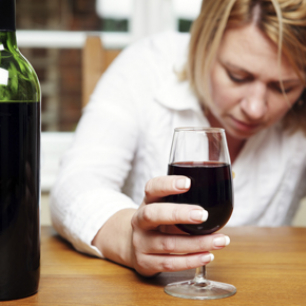This media release was first published by South Pacific Private.
- Experts warn on closing of gender gap in alcohol use and abuse
- Male and female rates of substance use disorders converging in 12 out of 14 countries
- Males are twice as likely to drink daily as women BUT close to one in five females aged 14-19 drink alcohol weekly
- The number of Australian women aged 20 to 29 with symptoms of alcohol abuse has increased by 27,000 in 10 years
- Age of first drink is now the same in men and women 29 and under - just over 14 years
- By contrast female baby boomers had their first drink at 17 – nearly three years later than their male counterparts, who had their first drink at 14
- Minority seek treatment after developing symptoms of substance abuse
WHAT: Industry Briefing: Women, Substance Use and Mental Health.
WHEN: Wednesday 6 February 2013.
WHERE: Holme Sutherland Building Sydney University.
TIME: 10am.
New evidence that young women aged 29 and under have closed the gap on males in alcohol use and abuse will be presented at an industry briefing today (February 6).
Adolescent males and females now typically have their first drink at the same age – just over fourteen. By contrast their baby boomer mothers and grandmothers born between 1953 and 1962 had their first alcoholic drink at age 17 – more than two years later than their male counterparts.
As well in the ten years between 1997 and 2007 the number of young female Australians diagnosed with symptoms of alcohol abuse increased by 27,000 – a much bigger increase than that seen in 30 and 40 year olds over the same period.
Professor Maree Teesson, of the National Drug and Alcohol Research Centre who will present the data today said that while binge drinking was a problem for young men and women in Australia, the “catch up” by women was concerning.
“We already know that Australians have a significant problem with alcohol,” she said. “More than 3.5 million Australians’ lives are seriously affected by alcohol and males are twice as likely to experience problems with alcohol as females, but this is changing not only in Australia but around the world.
“Younger Australians are engaging in more episodic drinking and problem drinking and this increase is greater for females.
“As economic and social roles converge so too do drinking patterns.”
Yet a minority of men and women who develop problems access treatment and on average wait 18 years to seek treatment. Only a third of people with alcohol use disorders will receive treatment over their lifetime, she said.
“Younger Australians are seeking treatment sooner than previous generations but young men are more likely to seek treatment than younger women,” she said.
“For physical and mental illness other than substance use women are more likely to seek treatment than males – this is not the case with substance use disorders.”
Lorraine Wood, Executive Director of South Pacific Private Hospital, which is hosting today’s briefing, urged women to seek treatment and change the “family legacy”.
“Women entering treatment for addiction, depression or trauma related conditions such as PTSD face a complexity of problems that can be quite different to men,” said Ms Wood.
As well the child of a mother who is struggling with alcoholism is adversely affected in so many ways that we are able to predict their likely issues in adulthood.
“That is why we are talking about changing the family legacy – by getting into treatment a woman can support her whole family toward healthier and happier ways of living down through the generations.”
SPEAKERS
Professor Maree Teesson - National Drug and Alcohol Research Centre
Professor Helen Christensen - Executive Director the Black Dog Institute.
Lorraine Wood - Executive Director of South Pacific Private.
To attend the forum or arrange interviews with any of the presenters please contact Claire Barber, Public Relations at South Pacific Private, Phone: (02) 9905 3667, Mobile: 0422 079 771.
South Pacific Private is an accredited Psychiatric Hospital, in Sydney’s Northern beaches specialising in addiction and mood disorders.
South Pacific Private is a therapeutic centre of excellence in the integrated treatment of depression, anxiety, alcohol and other addictions, trauma, disordered eating, relationship issues and co-occurring conditions.
Its therapeutic program, based on the principles of a Treatment Centre, includes group therapy, psycho-education, psychiatric care, and 12 step program engagement, with a strong focus on treating the underlying core issues which have fuelled the presenting problems, and encouraging families to become involved in the client’s treatment journey.
Residential and day programs are designed, within a structured framework, to offer a treatment pathway tailored to the individual needs of each client. All programs are facilitated by a multi disciplinary team of Psychiatrists, Psychologists, Registered Nurses, and Therapists trained in a diverse range of therapeutic modalities. It provides a safe, therapeutic community where people can gain awareness into their illness in a supportive, empathic environment.
For more information on South Pacific Private visit: http://www.southpacificprivate.com.au/


